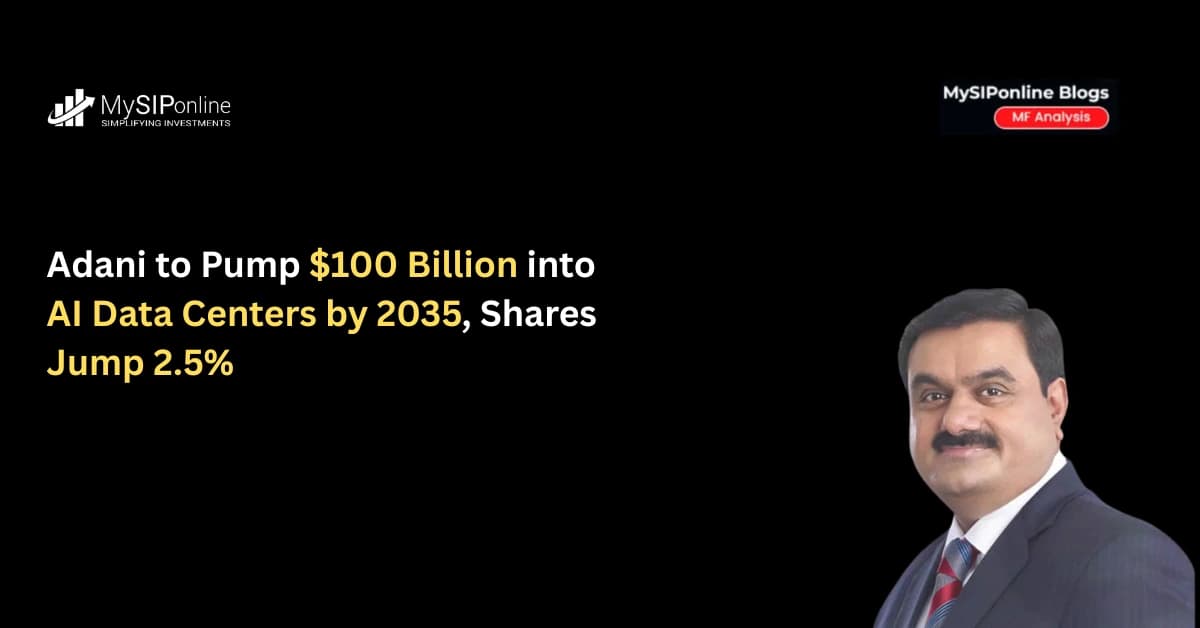Table of Contents
- Axis Banking & PSU Debt Fund - Regular Plan - Growth option
- ICICI Prudential Multi-Asset Fund - Growth
- ICICI Prudential Equity & Debt Fund - Growth
- SBI Conservative Hybrid Fund - Regular Plan - Growth
- HDFC Hybrid Debt Fund - Growth Plan
Table Of Content
Is SIP good for 1 year?
Systematic investment plan (SIP) is a method of investing in mutual funds where an investor contributes a fixed amount regularly, typically monthly, into a chosen mutual fund. SIPs are generally considered as a long-term investment strategy due to their ability to average out the cost of investment over time, reducing the impact of market volatility.
While SIPs are designed for the long term, there might be situations where someone considers using SIPs for a shorter duration, such as one year. Here are some points to consider:
1. Market Volatility
In short (like one year), markets can be volatile. The performance of Mutual Funds, and thus your SIP investment, can be influenced by short-term market fluctuations.
2. Risk
Investments in equity mutual funds, which are common choices for SIPs, come with a certain level of risk. In a one-year period, the risk of losses due to market downturns may be higher.
3.Return Expectations
The potential returns from a one-year SIP might be limited. Equity investments tends to show their potential over the long term. One year might not be sufficient for the investments to go through different market cycles.
4. Purpose of investment
The suitability of a one-year SIP also depends on the purpose of the investments. If you have a specific short-term financial goals, like saving for a vacation or a short-term expense, a one-year SIP might align with your goal.
5. Liquidity Needs
Consider your liquidity needs. Investments in mutual funds may not be easily liquidated as savings in a regular bank account. Ensure that you won’t need the funds before committing to a short-term SIP.
Equity mutual funds shine over the long term, especially with the magic of SIP. Yet, for shorter durations, like a year, turning to debt mutual funds are preferable choice.
There are 3 different types of funds Equity, Debt & Hybrid Funds. So let’s check is SIP for 1 year can be done in all 3 categories.
Equity Funds
Equity funds are tied to the unpredictable stock market, which is notably risky in the short term due to its high volatility. Historical data suggests that market downturns take about 1 to 3 years to recover losses. Therefore, for a systematic investment plan (SIP) in equity funds, a minimum commitment of 3 years is recommended for better chances of positive returns. Engaging in SIPs for less than 3 years requires expertise to predict short-term fund or sector performance. While skilled timing and expertise can yield rewards in the short term, it’s a more challenging and speculative approach compared to the stability offered by a longer investment horizon.
Debt Funds
The debt market or bond market is considered a safer investment space where returns typically fall within the range of 8-12%. However, when engaging in a systematic investment plan (SIP) in these markets, the averaging effect can lead to lower returns, usually around 5-6%. While this approach offers more stability, the downside is that the returns may not be optimal, often failing to outpace inflation. This makes it a less favorable option for investors seeking higher returns and a hedge against inflation.
Hybrid Funds
Hybrid funds are a blend of both equity and debt markets, offering a balanced mix of risk and returns. They offer moderate risk and returns of around 12-15%. For a short-term investment (1-3 Years) through SIP, they are a good option due to their balanced risk-to-reward ratio. Dynamic and multi-asset allocation within the hybrid category are like adaptable playlists managed by experts, adjusting investments based on market conditions. If you want a hand-off yet dynamic approach, these are the way to go.
Some of the best funds under this Multi Asset category are -
ICICI Pru Multi Asset Fund Growth
ICICI Prudential Multi Asset Fund-Growth, a product of ICICI Prudential Mutual Fund, Boasts a 21-year history since its launch on 31/10/2002. As of 30/09/2023, the fund manages a substantial Rs. 24,931 crores in assets, placing it as a medium-sized player in its category. With an expense ratio of 1.66%, slightly above the industry average, this Multi Asset Allocation fund currently allocates 59.57% to equity and 11.59% to debt, offering investors a diversified portfolio.
The 1 year return of ICICI Prudential Multi Asset Allocation fund is 17.54. Since its inception, the fund has yielded an average annual returns of 21.02%.
SBI Multi Asset Allocation Fund
SBI Multi Asset Allocation Fund-Growth, offered by SBI Mutual Fund, is a Multi Asset Allocation Mutual Fund with a history spanning 18 years since its initiation on 9/11/2005. As of 30/9/2023, the fund manages assets totaling Rs. 2,224 crores, positioning it as a medium sized fund within its category.
This fund allocates 41.49% in Equity and 18.75% in Debt funds. The fund has provided returns of 15.87% over the past year, while the average annual returns since its inception stand at 8.81%.
Tata Multi Asset Allocation Fund
Tata Multi Asset Allocation Fund – Regular growth by Tata Mutual Fund, with a 3-year history starting from 04/03/2020, manages Rs. 1,928.64 crores as of 31/10/2023. It allocates 9.69% to debt and 53.69% to equity. While its 1-year return is 11.29%, slightly below the category average and benchmark, its average annual returns since inception are strong at 19.16%, outperforming both. Despite slightly higher volatility (standard deviation of 8.51 compared to the category average of 8.0), it exhibits better risk-adjusted returns with a sharpe ratio of 1.37 compared to the category average of 1.24. Investors should assess their risk tolerance and investment goals before considering this fund.
Motilal Oswal Multi Asset Allocation Fund
Motilal Oswal, Multi Asset Allocation Fund – Regular Growth, launched on 04/08/2020, manages Rs. 111.93 crores as of 31/10/2023. With 42.14% in Equity AND 42.46% in Debt, the fund’s 1-year return is 12.48%, slightly below the category average of 13.92% average annual returns since inception are 5.68%, lower than the category average of 9.54%. The fund has lower volatility (standard deviation of 4.81) but a lower sharpe ratio (0.34) compared to category average (1.24), suggesting less favorable risk –adjusted returns. Investors should assess their risk tolerance and investment goals before considering this fund.
Conclusion
In summary, considering a one-year systematic investment plan (SIP) requires a nuanced approach. While Online SIP are typically deigned for the long-term, they may suit short-term goals. Equity funds suggest a minimum three-year commitment for better returns, while debt funds may offer lower returns in a one-year SIP. Hybrid funds provide a balanced risk-reward ratio for short-term investments. Specific multi-asset funds like ICICI Pru and SBI have shown consistent performance, Tata Multi Asset demonstrate robust risk-adjusted returns, and Motilal Oswal, through with lower volatility, has a less favorable sharpe ratio. Inverstor should align their goals and risk tolerance before opting for a one-year SIP.






.webp&w=3840&q=75)




